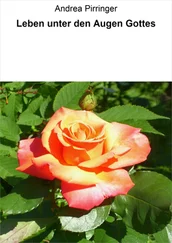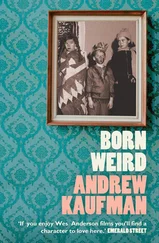I looked carefully at Jamilla and saw for the first time the color of fun washed from her cheeks, like she was suddenly older and more tired. I decided to ask Pir Hederi to find a job for her at the store.
“So, where is Spandi?” I asked.
“At the other end of the street selling his cards,” Jamilla revealed. “He’s looking so much better now that your friend Haji Khan took away his can.”
“Yeah, fuck me, Fawad,” Jahid joined in. “Haji Khan. You’re playing with the big boys now.”
“Do you know him?” I asked.
“Yeah… well, no, not personally, but I’ve heard of him. He’s a real Afghan hero!”
“Not a drug dealer, then?”
Jahid shrugged. “Show me a rich man in Afghanistan who isn’t mixed up in drugs. It doesn’t make him a bad man, does it? This ‘stop growing poppy’ shit is the West’s problem, not ours. It’s all their people who are injecting the stuff and catching AIDS off each other. We’re just trying to get by.”
“So, how do you know Haji Khan is into drugs?” I asked Spandi as we walked back home from Chicken Street.
“It’s just something I heard.”
Spandi was counting his dollars as we walked, separating his money from Haji Khan’s and placing the notes in different pockets. He did look better, cleaner and younger. If only his face hadn’t been chewed away by the sand flies disease, he might even have been called handsome now.
“My father has some contacts in the east, some truck drivers who bring diesel over the border. They spend quite a bit of time in Jalalabad, and I’ve heard them mention Haji Khan once or twice.”
“And they say he’s a drug dealer?”
“So they say, but it’s only a rumor. He’s never been arrested or anything.”
“And what do you think?”
“Me?” Spandi shrugged. “I think it’s hard to arrest a man who’s fought for his country—and lost his family doing so.”
“What do you mean?”
“My father says Haji Khan used to be married to quite a woman, but the ISI killed her and their eldest daughter, shot them both as they lay in bed sleeping.”
“No!” A twist of guilt pulled at my body as I pictured Haji Khan leaning over what was left of his wife and daughter, darkness and death drowning him in tears. “Why would they do that?”
“He was fighting the Taliban, Fawad. It was probably a warning to him, but if that’s what they intended they fucked up badly because he fought like a madman after that. My father says some of his missions from Peshawar into Afghanistan were legendary because they were largely suicidal, but I guess Haji Khan didn’t care about dying after what happened. I don’t suppose he cared about anything.”
I said good-bye to Spandi at the corner of the British Embassy in Wazir and popped by Pir Hederi’s shop to beg for a job for Jamilla. He told me he’d think about it, despite all women, no matter how young they are, being a curse to every Afghan man of sound mind, and I thanked him for his consideration, knowing full well he would help her, because otherwise he would have just said no.
As I walked the long way home, past the large homes of NGO workers, ministers, and businessmen and the laughter-filled grounds of the Lebanese and Indian restaurants, I thought of Jamilla and how happy she would be when I told her about Pir Hederi’s job. And as I got closer to my house I thought of how utterly destroyed Haji Khan must have been when he returned to his own home to find his family asleep forever, their bodies wet with blood.
His pain was real to me. I could almost taste it.
Amazingly, when foreigners visit this country, they can’t help but go on about its “breathtaking beauty” and how “noble and courageous” its people are, but this is the reality of Afghanistan: pain and death. There’s not one of us who hasn’t been touched by them in one way or another. From the Russians to the mujahideen to the Taliban, war has stolen our fathers and brothers; the leftovers of war continue to take our children; and the results of war have left us poor as beggars. So the foreigners can keep their talk of beautiful scenery and traditional goodness because all of us would swap it in a heartbeat for just one moment’s peace, and it’s high time the sorrow that came to plant itself in our soil just packed up and went away to terrorize someone else.
When I got to the house, all the lights were on and I could see James and May through the back window fixing colored paper to the walls. A strong smell of alcohol was coming from the kitchen, and when I went in to investigate I found my mother there stirring a large pot of oranges and herbs swimming in hot red liquid. The radio was belting out a Hindi love song, and she was dancing as she worked.
“Is that alcohol?” I demanded, startling my mother into a halt.
“It’s only forbidden to drink it, Fawad, not stir it.”
She started laughing, and I wondered whether she was suffering from its fumes, in the same way Spandi had been knocked senseless by the smoke of Ismerai’s cigarettes.
“Fawad, my boy!” James came bounding into the kitchen. He had glitter in his hair. “Come, help!” he ordered.
I followed him into the large living room, which was now a mess of tattered paper hanging from the walls and ceiling. A small plastic tree had been placed in the corner, and candles covered every spare space on the window ledges, tabletops, and cupboards. May was now sitting on the floor next to the wood-burning bukhari , keeping warm as she glued lines of paper together. She smiled when I came in, which confirmed what I already knew: everyone had gone mad.
“Where is Georgie?” I asked James before he could get me involved.
He pointed upstairs and brought the corners of his mouth down, pretending to look sad. I nodded and left the room. I needed to show her that I was on her side now. And Haji Khan’s.
Although I’d never been to the top of the house before—well, not from the inside—I climbed the stairs and walked straight to Georgie’s door because my bearings were good and in my first few weeks I’d made a plan of the house in the notebook she’d given me.
I knocked gently and waited.
“Who is it?” she yelled from behind the closed door.
“Fawad!” I yelled back.
From inside the room I could hear some drawers being opened and closed again. Then, after a few seconds’ pause, the door opened, and Georgie stood there looking like she’d just woken up. Her hair was all over the place, she had no makeup on, and her sweater was on backward.
“Fawad,” she said, flatly surprised to see me.
“Sorry to disturb you, Georgie.”
She shrugged and opened the door wider for me to come inside. As she did so, I saw a large photo of Haji Khan sitting on a table by her bed.
I shook my head to tell her I wasn’t coming in. Carefully, I reached for her hand, which hung like a dead thing at her side, and told her, “Don’t worry, Georgie. He’ll call you.”
I then turned and walked back downstairs to help James with his decorations.
 6
6 
THE BIRTHDAY OF Prophet Muhammad (Peace Be Upon Him) is called Mawlid al-Nabi, and we celebrate the day on the twelfth of the lunar month of Rabi al-Awwal, although the Shia celebrate it five days later. During this day, rice is cooked, and milk and butter are collected. We then visit our neighbors to share what we have, even with those we don’t like. If we manage to find someone poorer than us, we share food with them as well. During the afternoon, the men and the older boys walk to the mosque to offer up prayers, while all the cars remain parked and the television and radio sets stand silent. As this is also the day the Prophet died, we neither laugh nor cry because we are happy that he came and sad that he went. Therefore we mostly spend the day just remembering him.
Читать дальше

 6
6 











